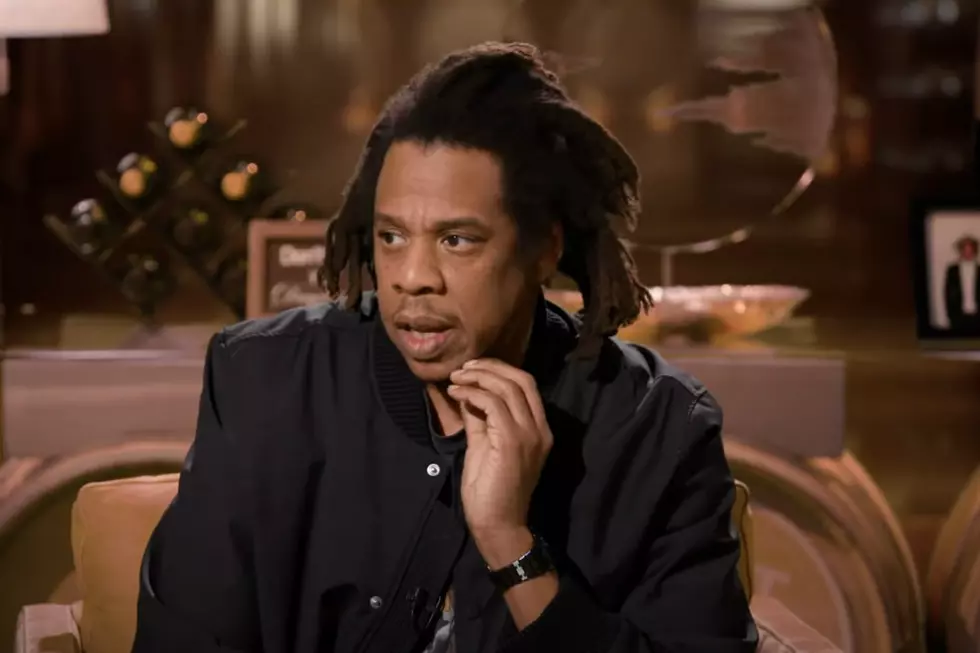Jay Z Calls the War on Drugs an ‘Epic Fail’ in New Provocative Animated Video [WATCH]
The war on drugs is nothing but a continuous series of lost battles strung together, and it hasn't been successful since it was started by President Richard Nixon in 1971. In other words, it's been an epic fail.
That's basically what Jay Z said in an animated video created by Molly Crabapple for The New York Times.
The piece is called A History of the War on Drugs: From Prohibition to Gold Rush, and Hov breaks down the huge discrepancies between whites using and selling drugs and blacks and Latinos who do the same, especially those who come from disenfranchised areas.
"Even though white people sold and used crack more than black people, somehow it was black people who went to prison," said the rap legend. "The media ignore actual data to this day. Crack is still talked about as a black problem."
Jay also spoke about drug dealers being singled out and blamed for the nation's drug problem, which in the '90s led to high incarceration rates that exceeded countries like Russia, Iran, Cuba and China — all places that many consider more oppressive than the U.S.
"Young men who hustled like me became the sole villain, and drug addicts lacked moral fortitude," he stated.
According to The New York Times, the project started when Dream Hampton — who co-authored Jay Z's book Decoded — contacted the Drug Policy Alliance to work with her social impact agency Revolve Impact.The mission of the agency is to pair artists with community activists in order to affect policy and initiate change.
In addition, Hampton approached the Drug Policy Alliance because she wanted to expound on the findings in Michelle Alexander's book The New Jim Crow: Mass Incarceration in the Age of Colorblindness.
In another part of the animated clip, Jay talked about the Nation's booming marijuana industry and said that many can't take advantage of it because of past convictions.
"If you're entrepreneurial and live in one of the many states that are passing legalized laws, you may still face barriers participating in the above-ground economy," explained Jay. "Venture capitalists migrate to these states to open multi-billion dollar operations, but former felons can't open a dispensary."
"Lots of times, those felonies were drug charges, caught by poor people who sold drugs for a living but are now prohibited in on of the fastest growing economies," he added.
You can watch the entire thought-provoking clip above.
More From










